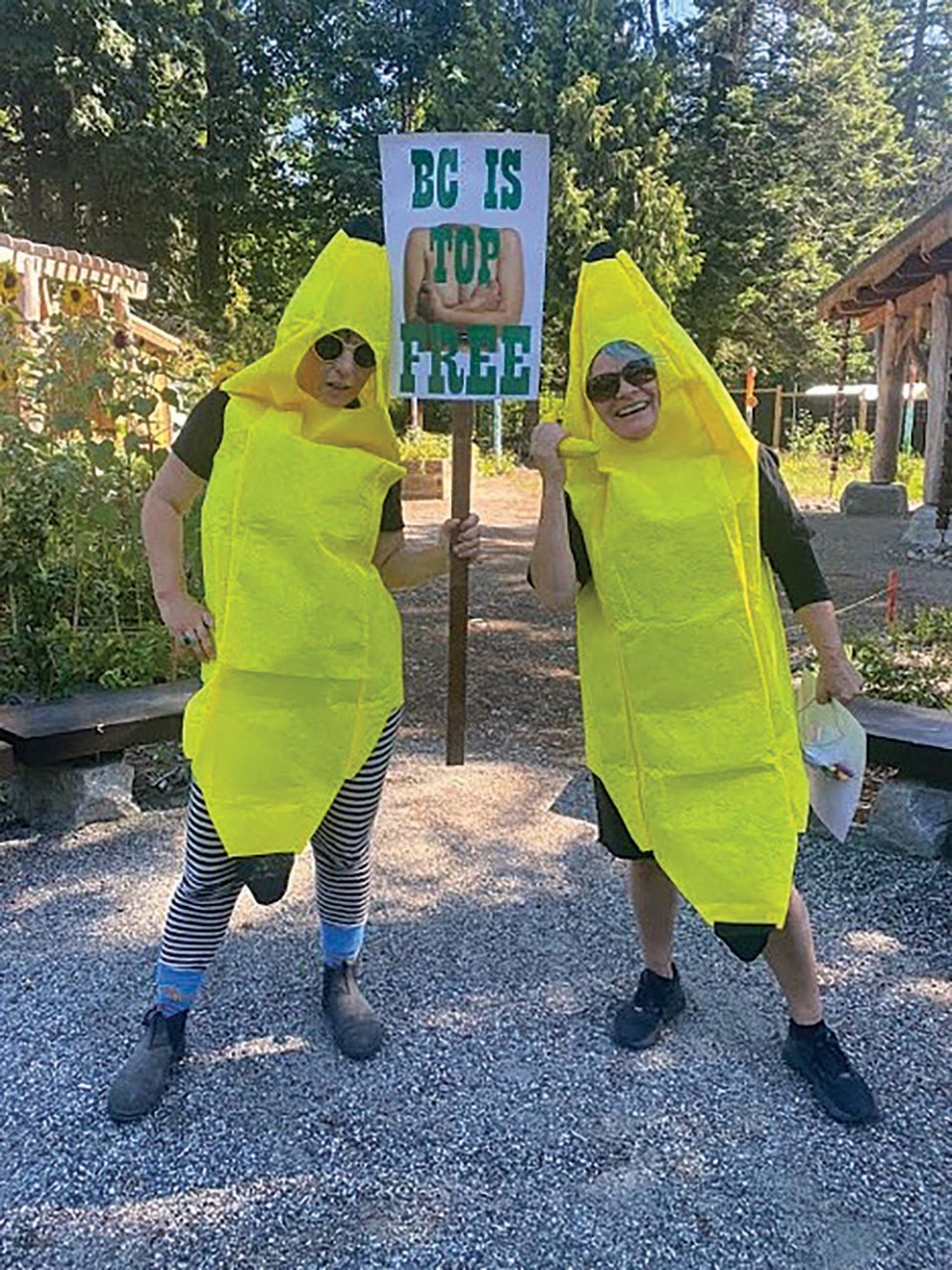A woman sunbathing at Roberts Creek Beach took off her top, a shoreline resident called the police, and, as per a Facebook post last month, RCMP actually showed up.
The backlash was swift. People pointed out, correctly, that in B.C., as enshrined by a 2000 BC Supreme Court decision, it is perfectly legal for women to be topless in public. Last week, leading the Higgledy Piggledy Parade, two walking bananas carried signs that read, “BC is Top Free.” So why did the call happen at all?
It wasn’t merely about decency. It was about a 200-year-old moral script that says women’s breasts must be regulated. This isn’t some universal rule — it was enshrined in the Victorian era. And the structures enforcing it weren’t neutral: wealthy, white, property-owning men, backed by church and state, had every incentive to confine women to the domestic sphere, rebranding the breast from functional organ to a symbol of virtue, acceptable only in controlled contexts: nursing, art, or later, bra ads. Even when the legal tide turned, like in Canada in the 1990s, the emotional tide didn’t.
That’s why, in 2025, a woman can be minding her business at Roberts Creek Beach, fully within her rights, and still have the police called on her.
Victorian hangover, anyone?
And like a hangover headache, the stigma lingers. On paper, a woman can take her top off at the beach without consequence. In reality, we know we will be met with stares, judgment, and offhand remarks. Too small, too big, too high, too low — an endless inventory. Do you know what that does to a person? It turns a simple act — lying in the sun — into a calculated risk. And let’s be clear: this reinforces the cultural code that our bodies are up for public management, approval or correction. That entitlement is why, for many women, “top free” remains abstract, not actual.
Reading Tits Up recently, I learned that sociologist Sarah Thornton began the project after a double mastectomy. She asked her surgeon for “lesbian yoga boobs” — between an A and B cup — and woke up with Double Ds. If we’re going to call the police for anything, it should be for that: the non-consensual remaking of a woman’s body by someone who thinks he knows better.
Yes, B.C. is top free and I’m grateful the walking bananas in the parade reminded us. Until we unhook the gaze, dismantle the entitlement, and break the reflex to police women’s bodies, that freedom will remain more theoretical than lived.
The Roberts Creek incident isn’t unusual. It’s the latest scene in a long-running play: the law has changed, but the old script keeps running. And for those keeping score, to paraphrase the critically acclaimed film Super Troopers: nobody owns the water, man — it’s God’s water.
And as for the script we’re living right now? Well, it’s August on the Sunshine Coast — which means blackberry season, outdoor music, and late-afternoon swims. You can show up with a sunhat, a cold drink, and your neighbours… and whether your tits are out or not is entirely your call. Assuming, of course, they’re yours to begin with.
Back to the word decency. I’ll choose circles where decency means supporting women’s autonomy, not policing it. Where respect isn’t doled out according to how much skin you show. And where calling the cops on a sunbather is recognized for what it is: control in morality’s clothing. If that’s the outfit, I’m showing up naked.
P.S. A thank you to Mar-lynn Church, who made the “BC is Top Free” parade signs and has been, in her words, “stirring our collective community pot for more than 55 years.” And bananas? They symbolize the ridiculous state of the world, embracing absurdism, and are an homage to Anna Banana — originator of banana performance art and an extra creeky Creeker and one who fully embodied the spirit of the Higgledy Piggledy Parade.



